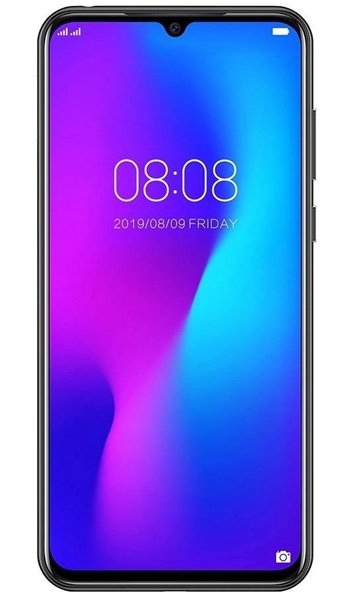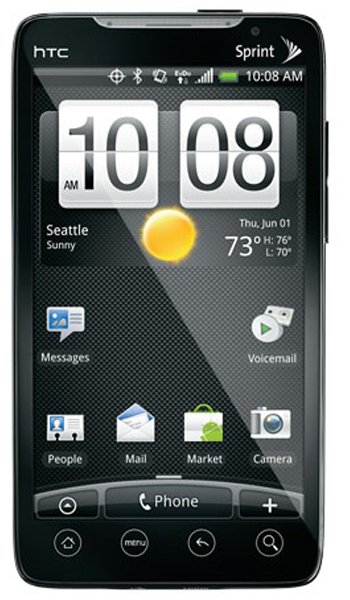Doogee Y9 Plus vs HTC Evo 4G+ Comparison and Differences
Smartphone 1

Doogee Y9 Plus
Smartphone 2

HTC Evo 4G+
Smartphone 3
Doogee Y9 Plus or HTC Evo 4G+ Specs Comparison
or
 Common specs
Common specs
| Brand and model | Doogee Y9 Plus | HTC Evo 4G+ | |
| Rating | (+) | (+) | |
| Release date | October, 2021 | 2011 | |
| Dimensions (HxWxD) | 159.0 x 77.1 x 8.4 mm | 6.26 x 6.26 x 3.04 in | 126 x 65 x 12.1 mm | 4.96 x 4.96 x 2.56 in | |
| Weight | 192 g | 6.77 oz | 160 g | 5.64 oz | |
| Body Build | Polycarbonate | ||
| Case | buy from Amazon | buy from Amazon | |
| Colors | Black, Blue, Purple | Black | |
| Battery | 4350 mAh, Li-Polymer, non-removable | 1730 mAh, Removable Li-Ion | |
| Battery life |
Stand by time - Up to 270 h (2G) / Up to 330 h (3G) Talking time - Up to 7 h 20 min (2G) / Up to 6 h 50 min (3G) |
||
| Approximate price | 150 EUR | ||
| Check price | from Amazon | from Amazon |
 Screen
Screen
| Technology | LCD IPS | Super LCD | |
| Touchscreen | capacitive touchscreen | capacitive touchscreen | |
| Display colors | 16M | 16M | |
| Screen size | 6.3" in | 4.3" in | |
| Screen area | 51.0 cm2 | ||
| Screen format | 19:9 (height:width) | 16:9 (height:width) | |
| Screen to body ratio | 80% | 62.2% | |
| Screen resolution | 1080 x 2280 px | 540 x 960 px | |
| Screen PPI /points per inch/ | 400 PPI | 256 PPI | |
| Other specs | - 400 nits (typ) | ||
| Screen protector | buy from Amazon | buy from Amazon |
 Camera and Video
Camera and Video
| Rear camera, main | 13 MP, Triple | 8 MP, Single | |
| Camera specs | -13 MP, ƒ/ 2.0, (wide), 1.12 µm -8 MP, ƒ/ , (ultrawide), -8 MP, (depth) |
-8 MP, AF | |
| Functions | LED flash | Dual-LED flash | |
| Video | 1080p video | 1080p@30fps | |
| Front camera, selfie | 16 MP, Single | 1.3 MP, Single | |
| Specifications | 16 MP, ƒ/ 2.0 | 1.3 MP |
 Performance
Performance
| Operating system - OS | Android 9.0 P | Android 2.3.4 (Gingerbread), upgradable to 4.0.3 (Ice Cream Sandwich); Sense UI 3 | |
| Chipset | - MediaTek Helio P23 (MT6763T) (16 nm) | - Qualcomm MSM8260 Snapdragon S3 | |
| CPU | - Octa-Core (4x Cortex A53 2.5 GHz + 4x Cortex A53 1.6 GHz) | - Dual-core 1.2 GHz Scorpion | |
| GPU | ARM Mali-G71 MP2 | Adreno 220 | |
| External memory | microSDXC (uses shared SIM slot) | microSD, up to 32 GB (dedicated slot), 8 GB included | |
| Internal memory | 4GB 64GB, 4GB · 64GB | 4 GB (1.3 GB user available), 1 GB RAM |
 Benchmark
Benchmark
| Antutu 8 Total | 55890 | ||
| Antutu 7 Total |
 Communication and Connectivity
Communication and Connectivity
| SIM card | Dual SIM, dual stand-by (Nano SIM + Nano SIM) | Mini-SIM | |
| Network | 2G / 3G / 4G / | GSM / HSPA | |
| Bands | -2G - B2 (1900), B3 (1800), B5 (850), B8 (900) -3G - B1 (2100), B8 (900) -4G - B1 (2100), B3 (1800), B7 (2600), B8 (900), B20 (800) |
-2G - GSM 850 / 900 / 1800 / 1900 |
|
| Speed | HSPA 14.4/5.76 Mbps | ||
| GPRS | Yes | Up to 114 kbps | |
| Edge | Yes | Up to 560 kbps | |
| Wi-Fi | 802.11a, 802.11b, 802.11g, 802.11n, 802.11n 5GHz,Dual band ,Wi-Fi Hotspot ,Wi-Fi Direct ,Wi-Fi Display | Wi-Fi 802.11 b/g/n, DLNA, WiMAX 802.16 e | |
| GPS | GPS, A-GPS, GLONASS | Yes, with A-GPS | |
| NFC | Yes | ||
| USB | Yes, USB On-The-Go (OTG) | microUSB 2.0 (MHL TV-out) | |
| Bluetooth | Bluetooth 4.0, A2DP | 3.0, A2DP |
 Music and Audio
Music and Audio
| Radio | Yes | Stereo FM radio, RDS | |
| Headphone jack | Yes | Yes |
 Other features
Other features
| Sensors | - Fingerprint (rear-mounted), Proximity, Accelerometer , Infrared port | - Accelerometer, gyro, proximity, compass | |
| Other extras |
- MP3/AAC+/WAV player -MP4/H.264 player |
||
| Versions |
- Also known as HTC Rider |
Reviews and Opinions on Doogee Y9 Plus and HTC Evo 4G+
If you had to recommend one of these phones to a friend, which one would it be and why? Share your arguments using the Add Opinion button!
